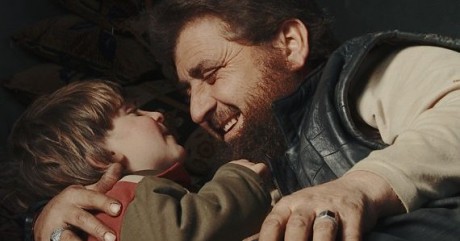


To Be in a Jury/ To be Awarded

My countryman Lars von Trier’s last film “The House that Jack Built” was not in competition at the Cannes Film Festival. In an interview he was asked, if he was sorry about that. No, he said, I don’t believe in competition within art – words to that effect. Well, of course he is right, how to compare an apple with a pear, on the other hand I am sure that he was not sorry to receive all the awards he had for previous films before he became a “persona non grata” at the festival! Who does not appreciate that your film is evaluated as price-worthy? “For who can bear to feel himself forgotten?” to quote W.H. Auden’s poem written for the classic British documentary “Night Mail”.
Here in Krakow there are many awards. I have seen all films in the main competition and let’s see whether the critics points match those of the jury! It’s not always the case, luckily.
Does it mean anything for the filmmakers to be awarded? Of course – Apart
from the appreciation there is often money attached to the award, which can be important for the filmmaker. Let me give you a piece of memory:
20 years ago I was in the jury of IDFA in Amsterdam and we had three very strong films in the final round, and we had two awards to hand out – the main award and a special jury award. The films were “Pavel and Lyala” by Viktor Kossakovski, “Fotoamator” by Dariusz Jablonski and “Bread Day” by Sergey Dvortsevoy. We decided to give the Jury award to Kossakovski and the main award to Jablonski – and nothing to Dvortsevoy. Ahhh, he was actually the one, who needed the money most as he had done “Bread Day” without any funding. He had made the film from the award he got from his first film “Happiness”: rolls of negative film material for shooting. I knew that but it is not what a juror should be influenced by. But I still remember the disappointment I could read in his eyes.
The same goes for the arguments I have experienced in other juries: No, this film has already had so many awards so it does not need one more… The answer to this: It can only be the best film that can win…
But how do you find the best film? Is it the cinematic qualities you put highest on your evaluation list? The camera work, the editing, the storytelling, the sound? The director’s personal touch, style, “handwriting”. Or is it the theme, the importance and the relevance of the subject, the visual treatment, the nationality of the director, a young talent to be honored? And how much does your personal taste influence the decision?
The answer to this is Yes… it is most often a mix of all these elements, isn’t it?
I see with pleasure that here in Krakow most awards go to directors – and not to producers/ production companies. It is the directors, who have had the film in their heads for years, it is the directors who have the final say in a film, it is an appreciation of the “auteur” tradition. And if money awards are involved, they land in a dry place, as the directors are often those who suffer most when a film goes over time, and the budget is spent.
May the great films be awarded!